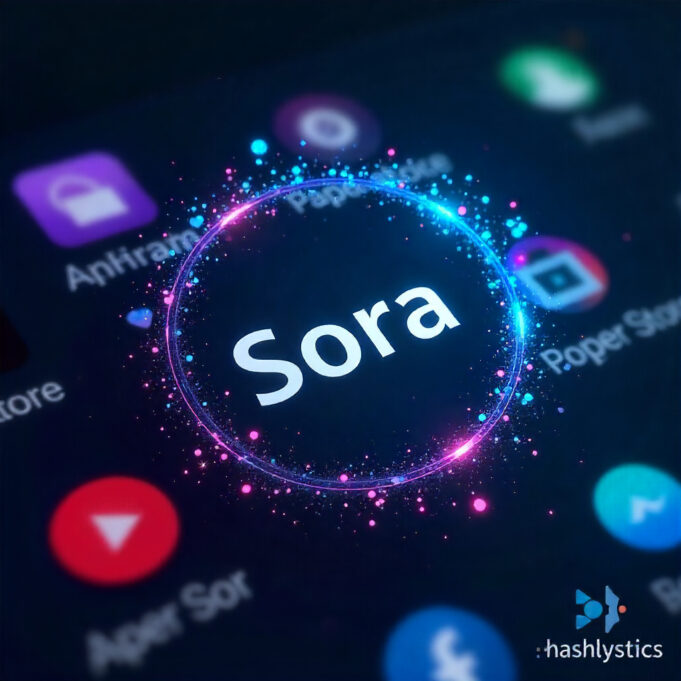OpenAI’s latest creation isn’t just another AI chatbot trying to write your emails; it’s Sora, the app that’s turning everyone into the next Spielberg (or at least letting them pretend to be). Despite playing hard to get with its invite-only status and limiting itself to the U.S. and Canadian markets, this AI video generator has managed to rack up a jaw-dropping 164,000 downloads in just 48 hours. That’s roughly 57 downloads per minute – faster than most people can figure out what prompt to type.
OpenAI’s Sora App Hits 164K Downloads in Two Days
The September 30th launch saw Sora moonwalk its way to 56,000 first-day installs, casually outperforming some pretty big names in the AI app ecosystem. To put this in perspective, Anthropic’s Claude managed 21,000 day-one downloads (apparently, not everyone wants a philosophical AI assistant), while Microsoft’s Copilot limped in with just 7,000 (ouch). Sora tied with xAI’s Grok at the 56,000 mark, though it couldn’t quite match the heavyweight champions – ChatGPT and Google’s Gemini both commanded around 80,000 downloads on their debut days.
The Exclusive Club Everyone Wants to Join
Here’s where things get interesting: Sora is still wearing velvet ropes like it’s a 1970s nightclub. The invite-only status means these numbers could have been even more astronomical if OpenAI had thrown open the gates to the masses. According to app intelligence firm Appfigures, Sora has already claimed the bronze medal as the No. 3 Top Overall app on the U.S. App Store. Not bad for a video creation tool that’s pickier about its users than a cat choosing where to nap.
The geographic restrictions add another layer to this success story. While other AI apps have pursued various launch strategies – ChatGPT initially kept things U.S.-only, Grok spread its wings to Australia and India, and Claude went for a more global approach – Sora’s limited release in just two countries makes its performance even more impressive. It’s like watching someone win a race with their shoelaces tied together.
Social Network or Tech Revolution? Why Not Both?
What’s particularly fascinating about Sora’s viral ascent is that it’s positioning itself as more of a social networking experience than a traditional creative tool. This has reportedly ruffled some feathers at OpenAI, where certain team members believe the company should focus on “solving harder problems that benefit humanity.” But who’s to say that giving people the power to create deepfakes of tech CEOs asking about “piggies enjoying their slop” isn’t benefiting humanity in its own twisted way? (Yes, that’s apparently a thing now.)
The demand for consumer-friendly AI video tools has clearly struck a chord. While ChatGPT reached the No. 1 spot on its second day and Gemini peaked at No. 6, Sora’s No. 3 position suggests users are hungry for more than just text generation. They want to create, share, and probably meme-ify everything in sight. It’s the democratization of video creation, wrapped in an algorithm and served with a side of viral potential.
The real question isn’t whether Sora will maintain this momentum – it’s whether our social media feeds can handle the incoming tsunami of AI-generated content. As more invites roll out and the geographic restrictions eventually lift, we might be witnessing the birth of a new era in digital content creation. One where everyone’s a filmmaker, reality is negotiable, and the line between “real” and “AI-generated” becomes as blurry as a video shot on a 2007 flip phone. Welcome to the future, folks – it’s weird, it’s wild, and apparently, it’s exactly what we wanted.




